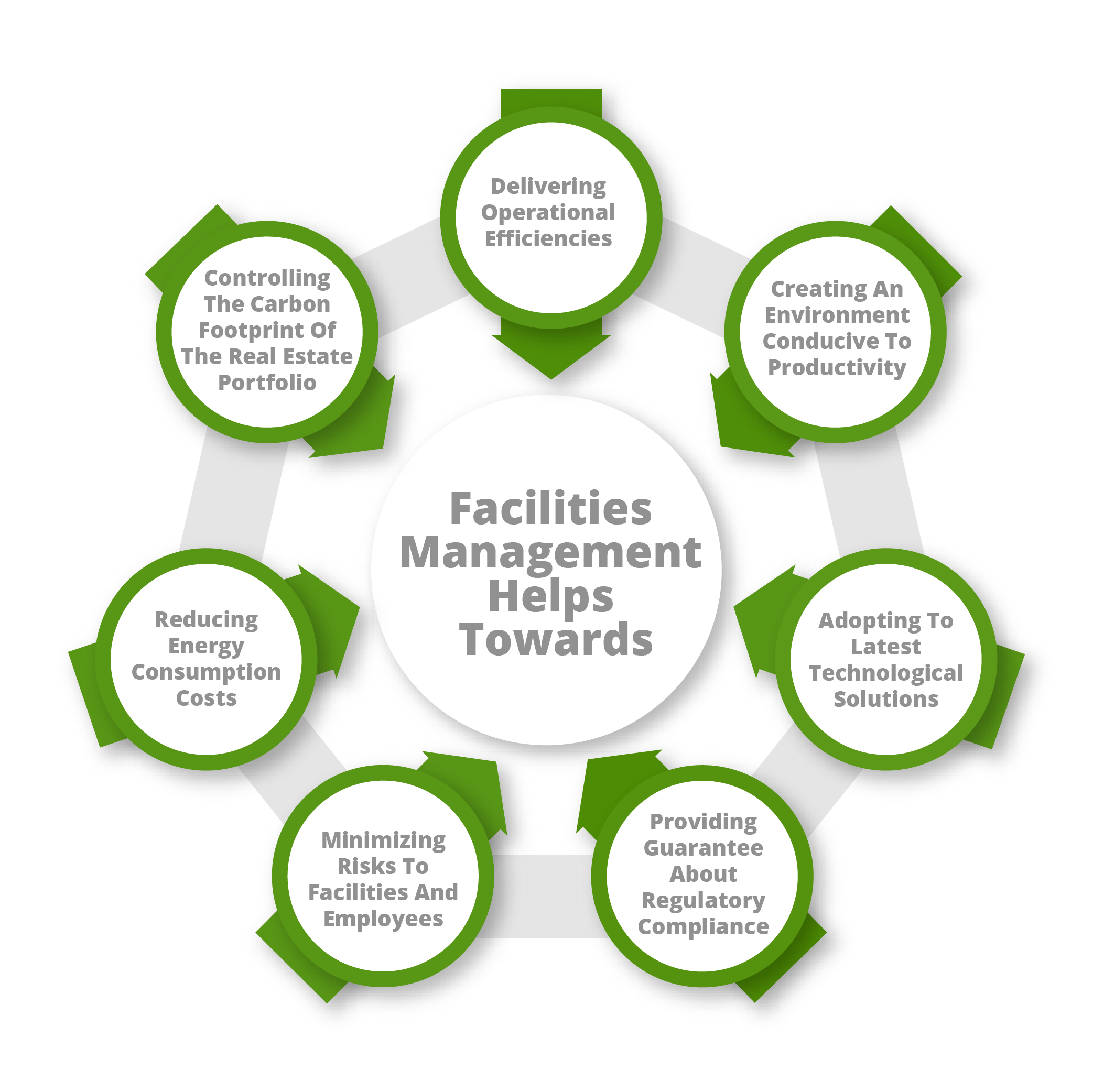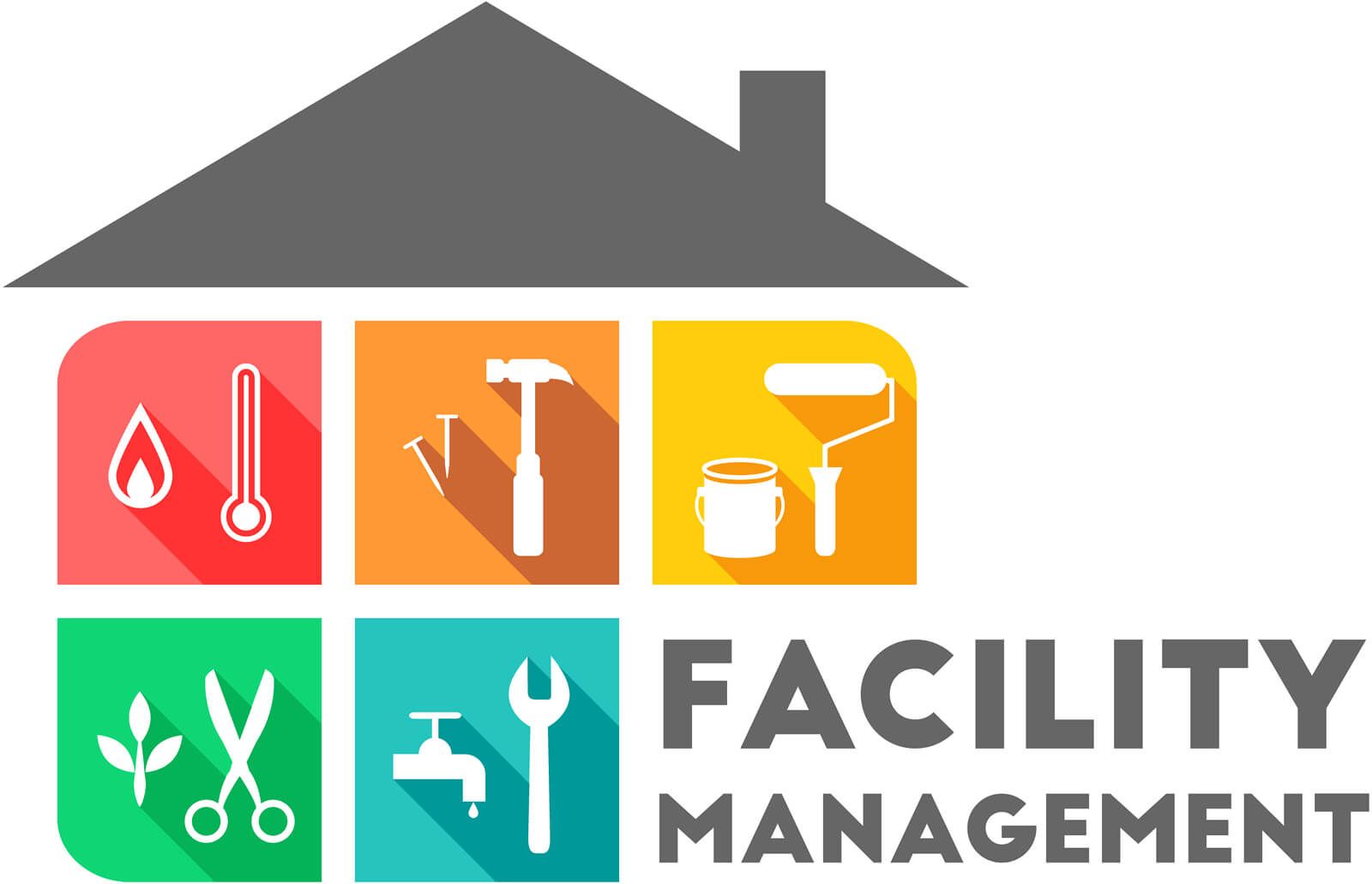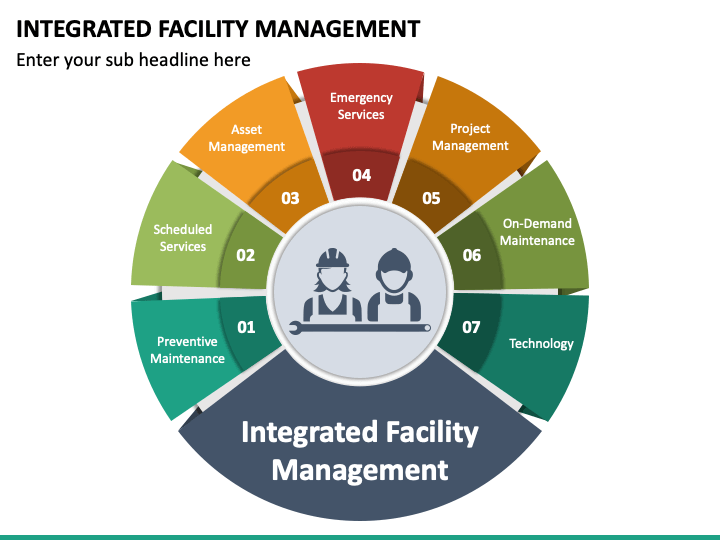How Total Facility Management Boosts Workplace Efficiency and Cost Efficiency
Why Total Facility Management Is Crucial for Business Success
Total Facility Management (TFM) serves as a foundation for business success by balancing varied operational aspects such as maintenance, space utilization, and safety and security procedures. As organizations navigate a competitive landscape, comprehending the multifaceted advantages of TFM can be critical in driving expense effectiveness and enhancing worker productivity.
Understanding Total Facility Management
Total Facility Management (TFM) includes a comprehensive approach to managing an organization's structures and associated services to make certain optimum performance, safety, and efficiency. TFM incorporates different disciplines, consisting of upkeep, procedures, area management, and safety methods, to develop a cohesive structure that sustains an organization's core objectives.
At its core, TFM aims to simplify the procedures included in facility management, enhancing and reducing redundancies solution distribution. This technique entails the coordination of tasks associated with property management, such as repair work, cleansing, and power management, to foster an effective environment for employees and stakeholders alike. TFM additionally emphasizes the importance of carrying out best methods and ingenious modern technologies to improve solution high quality and decrease functional prices.
By straightening facility management tasks with business goals, TFM improves total efficiency while guaranteeing conformity with wellness, safety, and environmental laws. Thus, TFM serves not only as a logistical feature yet also as a tactical possession, adding to a company's long-term sustainability and growth.
Secret Advantages of TFM
Leveraging a thorough approach, organizations that carry out Total Facility Management (TFM) unlock a myriad of advantages that add to total business success. One of the primary advantages of TFM is the enhancement of operational effectiveness. By combining facility services under a unified management structure, organizations can enhance procedures, minimize redundancies, and boost interaction throughout divisions.
Additionally, TFM advertises a positive upkeep method, which lessens downtime and prolongs the life expectancy of facilitiess and devices (Total Facility Management). This positive method not only boosts productivity but additionally promotes a much safer working atmosphere, eventually bring about higher staff member satisfaction and retention prices
In addition, TFM promotes much better resource allotment by providing understandings right into facility performance metrics. Organizations can recognize locations for enhancement, allowing them to make enlightened choices that line up with their strategic objectives.
TFM and Expense Effectiveness
Achieving price effectiveness is a fundamental objective for companies, and Total Facility Management (TFM) plays a pivotal duty in this venture - Total Facility Management. By integrating numerous facility solutions under a solitary management framework, TFM enables companies to enhance operations and lower redundancies. This alternative approach brings about considerable price savings, as it eliminates the requirement for multiple suppliers and simplifies purchase processes
Additionally, TFM fosters aggressive maintenance approaches, which reduce the threat of expensive fixings and downtime. By prioritizing preventative steps, companies can extend the life-span of their assets and minimize unexpected expenditures. In addition, TFM incorporates energy management practices, which can drastically cut energy costs with reliable resource usage.
The centralization of information and analytics within TFM allows organizations to make educated economic decisions. By determining fads and areas for enhancement, TFM allows customized strategies that additionally boost cost management. The scalability of TFM solutions guarantees that as organizations grow, their facility management techniques remain efficient and aligned with monetary goals.
Enhancing Worker Efficiency
A well-managed facility can substantially enhance staff member performance by creating a conducive work setting. Reliable Total Facility Management (TFM) makes certain that all facets of the workplace-- from lighting and temperature level to sanitation and safety and security-- are maximized. When staff members run in an area that is properly maintained and comfy, they are most likely to concentrate on their jobs, causing greater outcome and task complete satisfaction.
Furthermore, TFM can improve collaboration through the tactical design of public locations, motivating team effort and development. By buying the appropriate sources and innovation, organizations can help with seamless interaction and simplify process, additionally enhancing performance. Regular maintenance and punctual feedbacks to facility issues protect against disruptions that can otherwise hinder efficiency.
Additionally, a secure and healthy and balanced work environment, sustained by TFM practices, lowers absenteeism and advertises wellness, straight correlating with increased efficiency levels. Inevitably, prioritizing facility management is a financial investment not only in physical possessions but likewise in the labor force itself. By promoting an environment that supports staff member requirements and choices, companies can grow a more involved and efficient workforce, driving total success and competitive benefit.

Future Trends in TFM
Embracing technological developments is readied to improve the landscape of Total Facility Management (TFM) in the coming years. As the demand for effectiveness and sustainability boosts, TFM will significantly take on clever structure modern technologies, incorporating Net of Points (IoT) tools to manage and monitor facility procedures in real-time. This change will certainly make it possible for aggressive upkeep, substantially improving and decreasing operational costs solution distribution.

Sustainability stays a crucial visit the website emphasis, with TFM specialists expected to focus on eco-friendly methods. This consists of utilizing renewable resource resources and optimizing waste management systems to lower the carbon footprint of facilitiess.
Remote management capacities will certainly also be expanded, allowing facility managers to supervise procedures from basically anywhere. This adaptability will certainly become vital as organizations adapt to hybrid work models. In summary, the future of TFM is poised for change through innovation, sustainability, and improved operational methods, making look at more info sure services continue to be affordable in an advancing landscape.
Verdict
By integrating various operational functions, TFM boosts efficiency and aligns facility management with business goals. As services progressively take on sustainable techniques and cutting-edge modern technologies, the significance of TFM will certainly continue to expand, guaranteeing lasting operational performance and competitiveness in a progressing marketplace.
